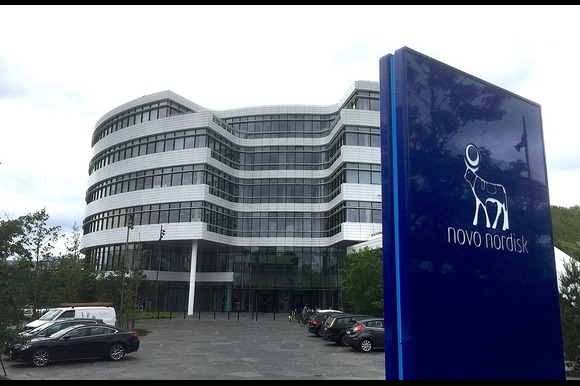Danish pharmaceutical company Novo Nordisk has acquired global rights to the “triple-G” weight-loss drug candidate from China-based United Laboratories International in a transaction valued at up to $2 billion.
Novo is actively working to enhance its presence in the burgeoning $150 billion obesity market through the development of innovative drugs, strategic acquisitions, and partnerships. The agreement with United Laboratories grants Novo the rights to develop, manufacture, and market the experimental drug UBT251.
UBT251 is part of a new class of medications that aim to target a combination of gut and pancreatic hormones, potentially leading to more significant weight loss than the currently favored GLP-1 receptor agonists, such as Novo’s Wegovy and Lilly’s Zepbound, which focus solely on the GLP-1 hormone. UBT251 targets GLP-1, GIP, and a third hormone, glucagon, hence its designation as “triple G.”
In a competitive landscape, Eli Lilly is also working on a similar drug, retatrutide, which has demonstrated the ability to help patients lose up to 24.2% of their weight in mid-stage trials. This development has intensified pressure on Novo, particularly after disappointing results from its highly anticipated next-generation obesity drug candidate, CagriSema, which negatively impacted its stock and raised concerns about Lilly’s advancing position.
BMO Capital Markets analyst Evan Seigerman noted that preliminary data from UBT251 indicates it could be “potentially competitive” with Lilly’s retatrutide.
Seigerman remarked that this licensing agreement might represent an initial step in Novo’s broader strategy to explore alternative mechanisms to compete in the high-efficacy weight loss sector. Novo will make an upfront payment of $200 million, with the potential for an additional $1.8 billion contingent on meeting specific milestones.
As part of the agreement announced on Monday, United Laboratories will retain rights to UBT251 in certain regions, including Mainland China and Taiwan.
Last year, both Merck and Lilly entered into partnerships with Chinese biotechnology firms to develop obesity treatments. Seigerman highlighted that major pharmaceutical companies are increasingly looking to Chinese biotech firms as a source for cost-effective early licensing agreements.






